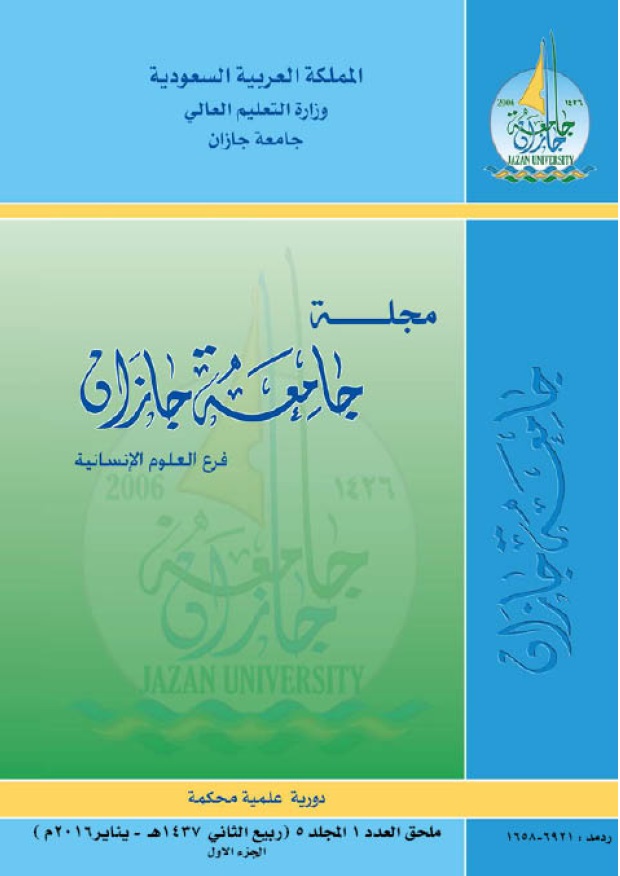Analyzing Errors in the use of numbers in the writings of Non-Arab Students
Keywords:
Error, Number, Analysis, Writing, ForeignersAbstract
Number remains a big problem for both native and non-native speakers of Arabic. However, non-native speakers of Arabic face many difficulties to overcome and to master the different rules of Nuumber. In spite of this, Number has not got any attention from the researchers of teaching Arabic to non-native speakers, especially in the field of Error Analysis. Al-Hariri, 1996; Ismail; and Al-Osaili, 1422H mentioned some of these difficulties to both Arab and non-Arab learners. The outcome showed that the learners made many errors in Number. These errors were distributed into two categories: objective and composition questions. The percentage of errors were high it arrived up to (36%). The causes of errors were mother tongue interference and developmental, such as: inherent difficulty of the Arabic language, overgeneralization, hyper-correction, ignorance of rule restrictions, incomplete application of rules, the text book, false analogy. and carelessness. There may be other secondary causes of a psychological, sociological and educational nature. These include forgetfulness, lack of attention, misunderstanding and lack of practice. These definitely lead to errors, but there is no way of making sure what a particular error is due to what cause, no hard evidence can be given. The study supports the questions of the research that the learners face many problems in Numbers. The causes of errors are not only interlingual (i.e., mother tongue interference) but also intralingual (i.e., developmental). The research will offer benefits to the leamers, teachers and syllabus designers..
Downloads
Downloads
-
PDF (Arabic)
38
15
Published
Issue
Section
License
Copyright (c) 2016 CC Attribution 4.0

This work is licensed under a Creative Commons Attribution 4.0 International License.





